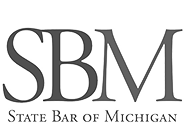What Are Some Other Features Of The Courtworks Platform?
There are a number of noteworthy features of the CourtWorks platform. The first thing I would say is that it simply gives a lot of flexibility to Courts and third party providers that are trying to help out defendants on supervision and probation.
Many defendants come into probation situations because their life is falling apart. There are as many complex stories and reasons for this as there are individual people. For instance, I had a client who was on probation for heroin possession, and had dropped out of high school and had to get a GED. As it turned out, he had dropped out of high school due to an athletic injury for which he was over-prescribed opioids, which spiraled him into a heroin addiction. That part of the equation, joined with his educational and addiction struggles, were pivotal to understanding how to help him get back on the right track.
No matter the details of the story in each individual defendant’s case, you will often see defendants on probation that are financially and educationally disenfranchised. They are trying to change their life for the better, but they’re caught up in a governmental system that, in reality, is primarily built for punishment rather than education.
Many of the online programs offered and made accessible by CourtWorks work to level the playing field to a certain extent for these defendants. CourtWorks gives defendants access to virtual therapy groups, online support group programs like AA, plus access to many many more community based programs, which are excellent if a defendant can’t get to in-person meetings for various reasons. CourtWorks also increases access to online work opportunities and community education opportunities (such as community college, etc.).
Before CourtWorks and similar programs started helping move the criminal justice system online, defendants on probation were basically handed agency brochures and told to find a program that fits their needs. Now, defendants have access to thousands of resources and online programs at the tip of their fingers, with extensive information on each that will allow defendants to actually pick something that might work for them.
As a whole, CourtWorks helps defendants help themselves in a way that properly utilizes 21st century technology.
Is Everything That’s Done Within The Courtworks Platform Legally Binding, Secure And Private?
CourtWorks was designed in the same vein as the programs that hospitals and doctors’ offices use for their patient portal systems. All electronic health records in those patient portals are maintained by specially secured programs in order to be HIPAA-compliant. CourtWorks uses the same types of programs. In fact, we actually use the same servers used by many Michigan hospitals.
Does Someone Need To Be An Expert In Technology To Use The Courtworks Platform, Or Can Anyone Use It?
Courts and defendants have found that CourtWorks is very user-friendly, even for people who aren’t great with technology. In fact, we have gotten this feedback from many older, less technologically savvy users of the system.
For example, one of the first courts where CourtWorks was put in place was the second-biggest court in the State of Michigan. The Chief Probation Officer at that court was 75 years old when we introduced the system, and he absolutely loved it. He immediately took to the chat program, and felt like he was able to communicate much more effectively with his defendants. He was especially happy to be able to do his job without having to sort through thousands of emails, voice mails and defendant paperwork.
According to that CPO, there were very clear indications of how much time he was saving with CourtWorks right from the outset. In the pre-CourtWorks days, in order to communicate with a defendant or provider or check up on something, he would have to call the defendant or agency and usually would have to leave a voice mail. Every time did this, it would take him approximately two and a half minutes to leave or listen to a voicemail and take some action. With CourtWorks and their unique messaging system, it took him an average of 25 seconds. When you have a caseload of 350 defendants like that CPO did, all of that saved time quickly adds up to 100s of hours per year saved.
I should stress here that this CPO was not very technologically proficient at all. Still, he was able to quickly adapt to CourtWorks and use it to near-immediate effect. Once he saw how quickly and easily the new system was going to work for him, he was one of the biggest advocates for the program. It’s easy to use, and it works.
Why Is It Critical For Courts And Defendants To Have Clear Communication, Transparency, And Organization During Probation?
As a practicing defense attorney, I believe that communication, transparency, and organization is absolutely essential to making the probation process work. First and foremost, it is essential to keep many of my clients alive. In my work, I have seen the real consequences of a lack of communication, transparency, and organization during the probation process. Anything that worsens the condition or hastens the decline of an already vulnerable person must be avoided and mitigated if it is at all possible.
The importance of having an organized, transparent probation process with clear communication is also clear when you consider the fact that it dramatically increases defendants’ chances for success. Defendants have a much better chance of being able to successfully complete probation if they are able to avoid unnecessary errors and miscommunications. Having an open, accessible, and transparent line of communication with their probation officers and the outside agencies that are supporting them will help them avoid things like show causes, which will allow them to avoid show-cause warrants (and the ensuing fees as well as potential jail time).
So much of life is about communication, whether or not you’re going through a Court’s supervision and probation process. This goes for any human interaction: Communicating with your friends and family, with your boss, employees, co-workers, or clients, or with anyone else. Regardless of who you’re engaged with and trying to effectively communicate your hopes and desires, and toward that end, you need to be able to exchange ideas and information clearly and openly with one another in order to be successful.
CourtWorks exists and operates based on that premise. It facilitates transparency and organization and opens lines of communications between defendants, the Court, and third-party providers. This gives everyone—defendants, court officers, and providers—a much better chance of achieving their shared goal: The defendant’s successful completion of their probation.
How Do I Get Started With The Courtworks Program If My Court Is Not Familiar With It?
CourtWorks is a solution to an existing problem. Think of it like an aspirin for a headache. The headache exists, and the aspirin can serve as a pain reliever.
That is, courts, probation departments, and third-party providers across the state already have a problem…they have a headache of vertical silos of information whether they recognize it or not. For the most part, Courts do not have programs that help them manage the enormous bottlenecks of paperwork and information to tackle effectively.
Suggesting CourtWorks is like proposing an aspirin for the unique headache faced by the Court. Instead of having to live with these silos of information that prevent effective communication and organization, CourtWorks gives court administrators the management tools that will allow them to manage the thousands of defendants under their supervision much more successfully and efficiently.
Usually, we help introduce CourtWorks when court administrators or probation departments reach out to us for help with the bottleneck of paperwork and information. If you are interested in getting your Court involved, you can suggest that they reach out and contact us.
For more information on Features Of The CourtWorks Platform In MI, a free initial consultation is your next best step. Get the information and legal answers you are seeking by calling (800) 710-0529 today.
Awards and Accolades



